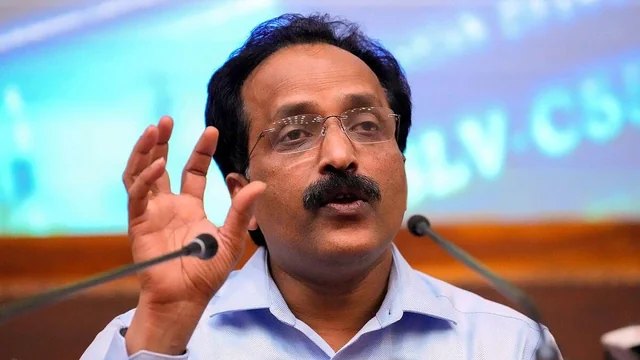As warfare increasingly shifts to the skies and cyberspace, space has become the critical frontier in national defense, according to former ISRO chief S. Somanath. He cautioned that without a significant expansion in satellite infrastructure, India’s military could face dangerous “blind spots” during conflicts—an unacceptable risk in an era where battles are fought far above ground level.
Speaking on the podcast From Code to Culture, Somanath emphasized that recent global conflicts, particularly the war in Ukraine, have shown how vital space assets are in modern warfare. He underscored that hypersonic missiles pose one of the biggest challenges today, as they’re nearly impossible to intercept with traditional systems. Detecting them early requires advanced space-based surveillance—far beyond current radar capabilities.
Referencing the U.S. plan to deploy a 500-satellite missile defense dome, he explained that such systems provide early warnings and track a missile’s entire flight path—from launch to potential impact—enabling timely countermeasures. Somanath urged India to develop its own satellite network, warning that reliance on foreign or commercial services could be crippling in a national emergency.
India currently uses a mix of its own and commercially available satellites, but Somanath argued that true independence demands a dedicated constellation, potentially hundreds of satellites strong. This is essential because satellites orbit the Earth rapidly and only observe a location for a short period—around 15 minutes—before moving out of range. A large network ensures continuous coverage.
He also highlighted the need for diverse satellite technologies—not just optical imaging but also thermal, radar, multispectral, and hyperspectral capabilities. With such a vast network comes an equally large influx of data, which must be processed rapidly and intelligently.
This is where AI will play a crucial role, analyzing raw satellite data and converting it into actionable insights for defense decision-makers. A networked, real-time control system is also vital, as is training personnel in the military to effectively manage and interpret this information.
Finally, Somanath warned that satellites themselves are now prime targets in modern warfare, underscoring the need for protective strategies around these critical space assets.



![[CITYPNG.COM]White Google Play PlayStore Logo – 1500×1500](https://startupnews.fyi/wp-content/uploads/2025/08/CITYPNG.COMWhite-Google-Play-PlayStore-Logo-1500x1500-1-630x630.png)